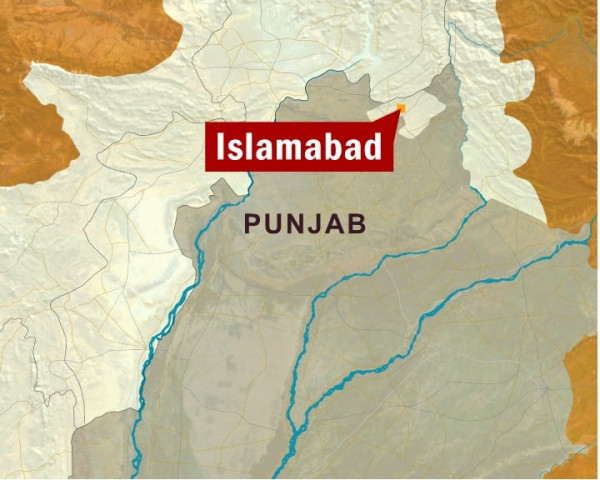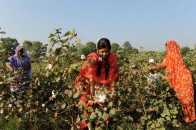Arab spring: Between a rock and a hard place
Experts foresee tough times for Arab world, Iran and Pakistan.

Speakers at a conference expressed dismay and surprise over the West’s selective response in “channelising the direction of the change” with respect to the Arab uprisings.
The conference titled ‘Middle East Development: Trends and Future Prospects’ was organised by Islamabad Policy Research Institute (IPRI) in collaboration with Islamic Republic News Agency (IRNA) on Thursday.
“America finds itself between a rock and a hard place. The West has been selective in its response, sparing Yemen but punishing Qaddafi,” said former foreign minister Inamul Haque, who was the chief guest at the conference.
He explained how different Arab countries have dealt with the uprising; Bahrain by inciting sectarian sentiments, the Saudi government by offering cash and fatwas, Libya by inviting “Western mischief”, Syria by crushing the protesters and Yemen by promising to remain in power till the end of the president’s term.
He criticised the International Criminal Court (ICC) and warned against certain steps which, in his opinion, are already being taken to break up Pakistan. He predicted a hard future for the Arabs on account of corrupt leadership.
In the first session, Ambassador (r) Tanveer Ahmed said the unrest provided the Arabs with an opportunity to express themselves, which they were unable to do since the end of the Ottoman empire.
“The West is trying to channelise the direction of the change. The future of the Arab revolution may feature a counter revolution in the shape of tight security, more money and limited reforms. But what has happened cannot be undone. The Arab world is going to change and US is trying to reconfigure the Middle East according to its liking,” he opined.
IPRI Acting-President Dr Maqsudul Hasan Nuri, after describing the political, social and economic causes behind the unrest said that the agitation for change would have far reaching consequences on the politics of the region, particularly in Iran and Pakistan.
He said Pakistanis welcome the trend but wish that there is no destabilisation and sectarianism which may spread to Pakistan. He said Pakistan should not interfere in these developments in anyway. He also touched upon the killing of Osama bin Laden and said politically he had died in the Middle East but was killed physically in Pakistan.
Nuri said Pakistan welcomed the trend but wished there was no destabilisation and sectarianism which may spill over into the country.
Dr Rifaat Hussain, Chairman of the Department of Defence and Strategic Studies at Quaid-i-Azam University talked about the nature of the uprising in the Middle East and described the Arab Spring as a popular revolt of the Arab masses against the dynastic order of governance in the Arab world.
“The entrenched states have been shaken and the revolts will be ultimately crushed by the repressive regimes,” he feared.
Former foreign secretary Akram Zaki concluded by saying that the Iranian revolution was the primary model for the change that the region is undergoing. He said the US is very clear about its policy which is to protect Israel, control strategic resources and force the world to toe its line.
“US spends 48 percent of its resources on the military to pursue these policies,” he added.
Published in The Express Tribune, May 20th, 2011.


















COMMENTS
Comments are moderated and generally will be posted if they are on-topic and not abusive.
For more information, please see our Comments FAQ